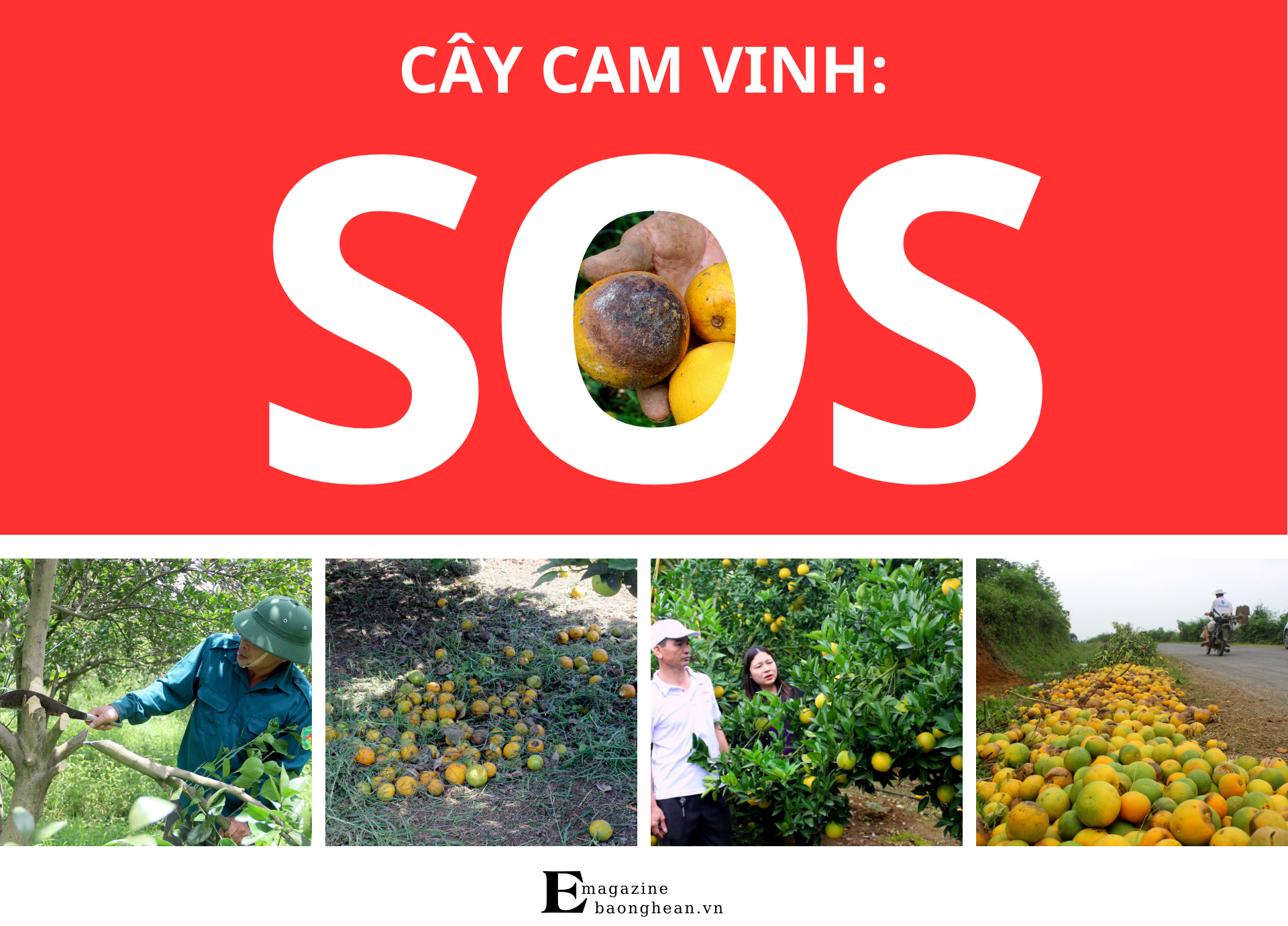
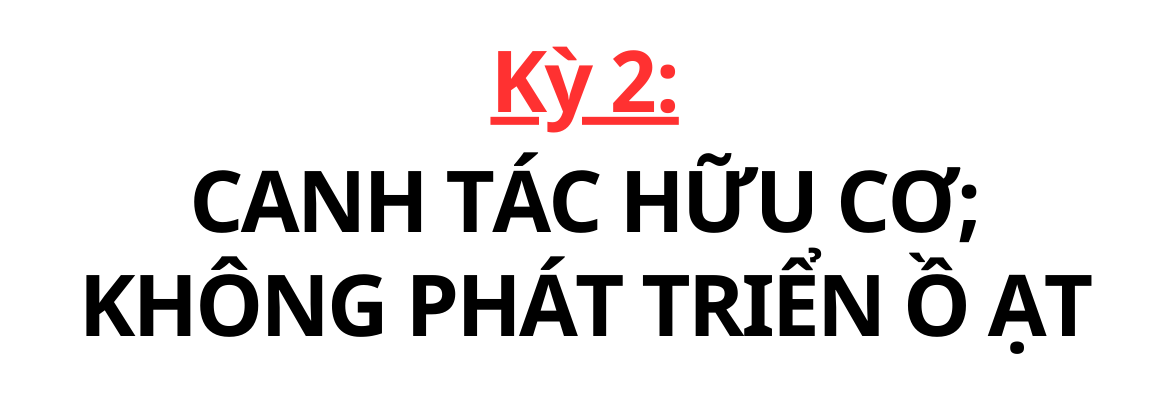
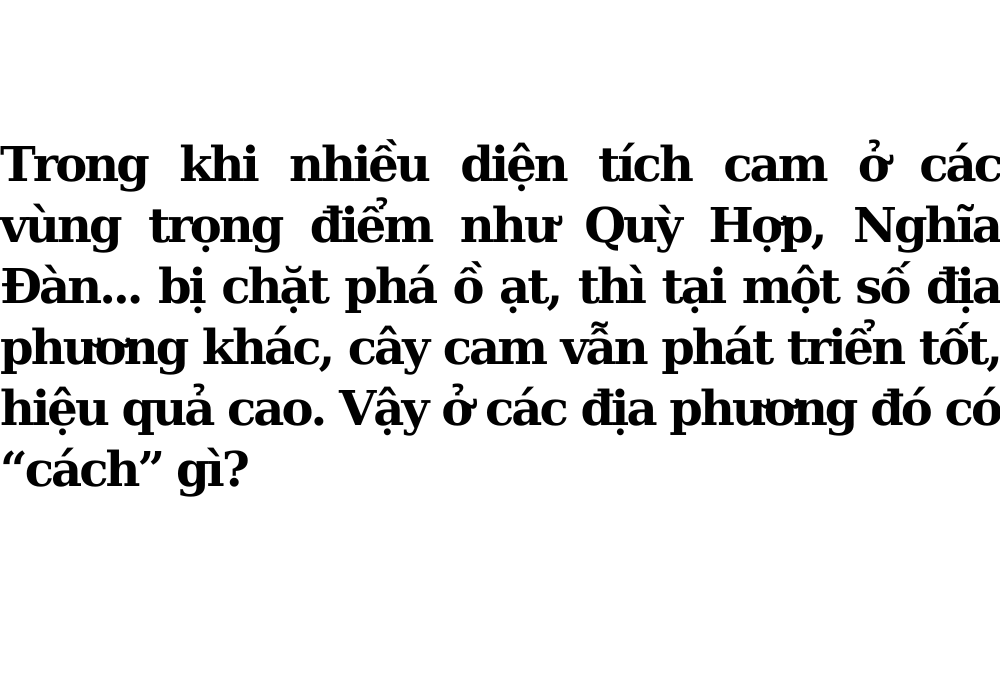

Yen Thanh district currently has more than 335 hectares of oranges, of which nearly 290 hectares are exploited, with an average annual output of nearly 6,000 tons. In recent years, "Yen Thanh oranges" have become a brand known and favored by consumers in and outside the province, with highly appreciated quality.
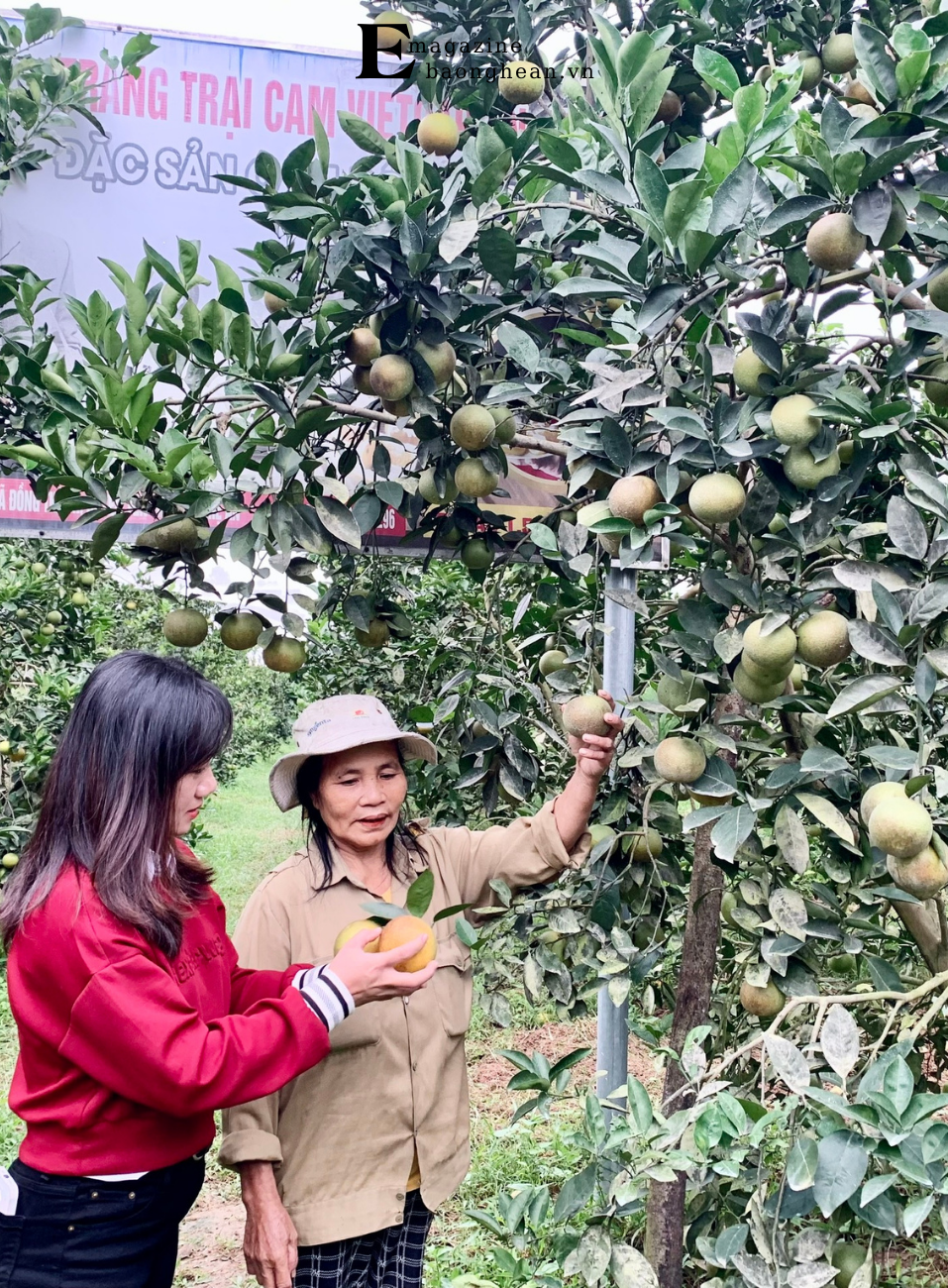
In Dong Thanh commune, there is an orange farm owned by Mr. Truong Van Bien's family in Dong Trung hamlet with an area of 5 hectares, growing 2,400 Xa Doai orange trees with golden hearts and a few Van Du oranges. "Oranges are a very difficult crop to grow, susceptible to pests and diseases, while the investment capital is very high, it takes until the 4th year to harvest the first crop. Therefore, I asked experts from the Vietnam Academy of Social Sciences for advice on care techniques and pest control," said Mr. Bien.
In addition to taking care according to VietGAP procedures, Mr. Bien also soaks and mixes biological pesticides from hot peppers, garlic, ginger, etc. to replace chemical pesticides. Thanks to the standard care process and good intensive investment, his family's orange farm, which has entered its 9th year, is developing very well, with an average orange yield of 25 tons/ha in the 2023 crop.
Having the advantage of being an agricultural engineer, before investing in planting 2 hectares of oranges in Dong Trung hamlet, Dong Thanh commune (Yen Thanh), Mr. Nguyen Dinh An carefully studied the sustainable cultivation process of this "difficult" crop. "Many orange gardens have degenerated early due to not following the correct process, not thoroughly preventing pests and diseases, and overusing broad-spectrum pesticides on the roots, causing the orange roots to lose their protective fungi, making them susceptible to fungal attacks that cause root rot and yellow leaves," Mr. An shared.
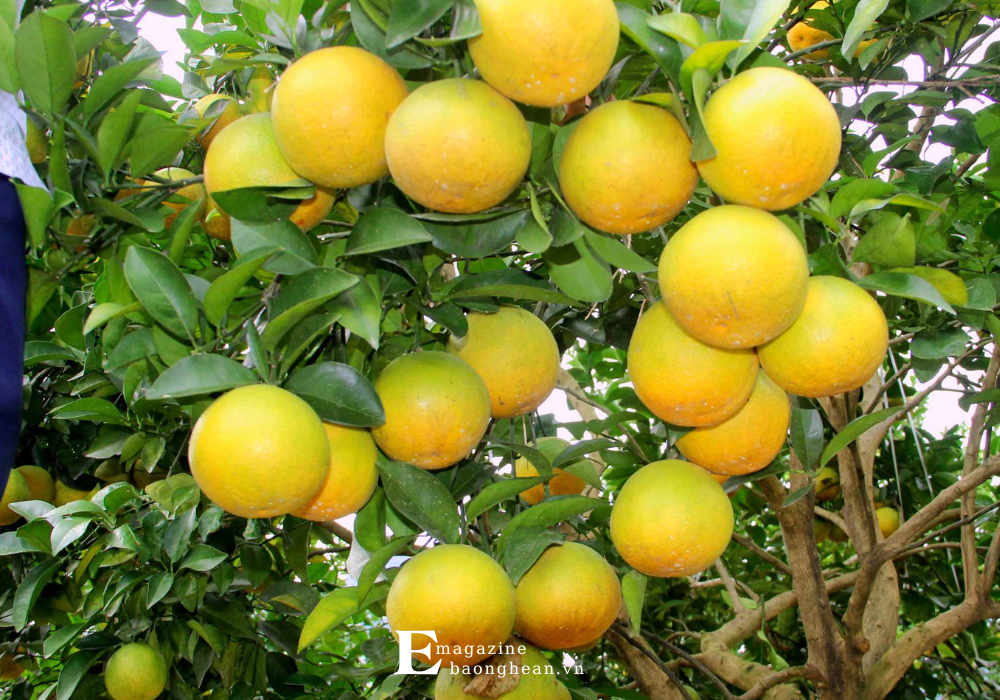
According to Mr. An, it is necessary to strictly follow the VietGAP orange production process, use a lot of organic fertilizer, fertilize with as much compost as possible to improve the root system, and pay attention to every small detail in investment and care, such as not clearing too much vegetation in the orange garden to avoid fungi and nematodes in the soil from concentrating on the orange roots, causing the oranges to spoil quickly, or not planting the orange roots too deeply, causing the orange tree roots to rot, leading to the oranges degenerating very quickly...
Up to now, Mr. An's family's orange garden is 7 years old, in its 3rd year of harvest and is very vigorous, with almost no pests or diseases. With a yield of 25-26 tons/ha, the average selling price at the garden is 35,000-40,000 VND/kg, after deducting expenses, this year's orange season his family will have an income of over half a billion VND. Mr. An said that at this rate, the orange garden will be able to be exploited effectively until the 13th-14th year.
Dong Thanh commune currently has nearly 100 households growing oranges, with a total area of nearly 120 hectares, of which more than 60 hectares of oranges are being harvested, with an average yield of about 15-25 tons/hectare, and an annual output of over 1,000 tons. If at the end of 2020, Dong Thanh orange cooperative had 7 households with orange gardens certified by VietGAP, now it has increased to more than 20 households. Mr. Phan Van Bao - Chairman of the Board of Directors of Dong Thanh orange cooperative, said: More than 80 hectares of oranges of the cooperative are recognized for production according to VietGAP process, in 2022 the product will be recognized as 3-star OCOP. Currently, the selling price of Dong Thanh oranges is often much higher than other places, averaging from 40,000-45,000 VND/kg, traders in the district, in Vinh city and other localities order directly from the garden, many times there are not enough oranges to sell. In general, Dong Thanh orange products have affirmed their brand and are certified as clean and safe oranges according to VietGAP and GlobalGAP standards.
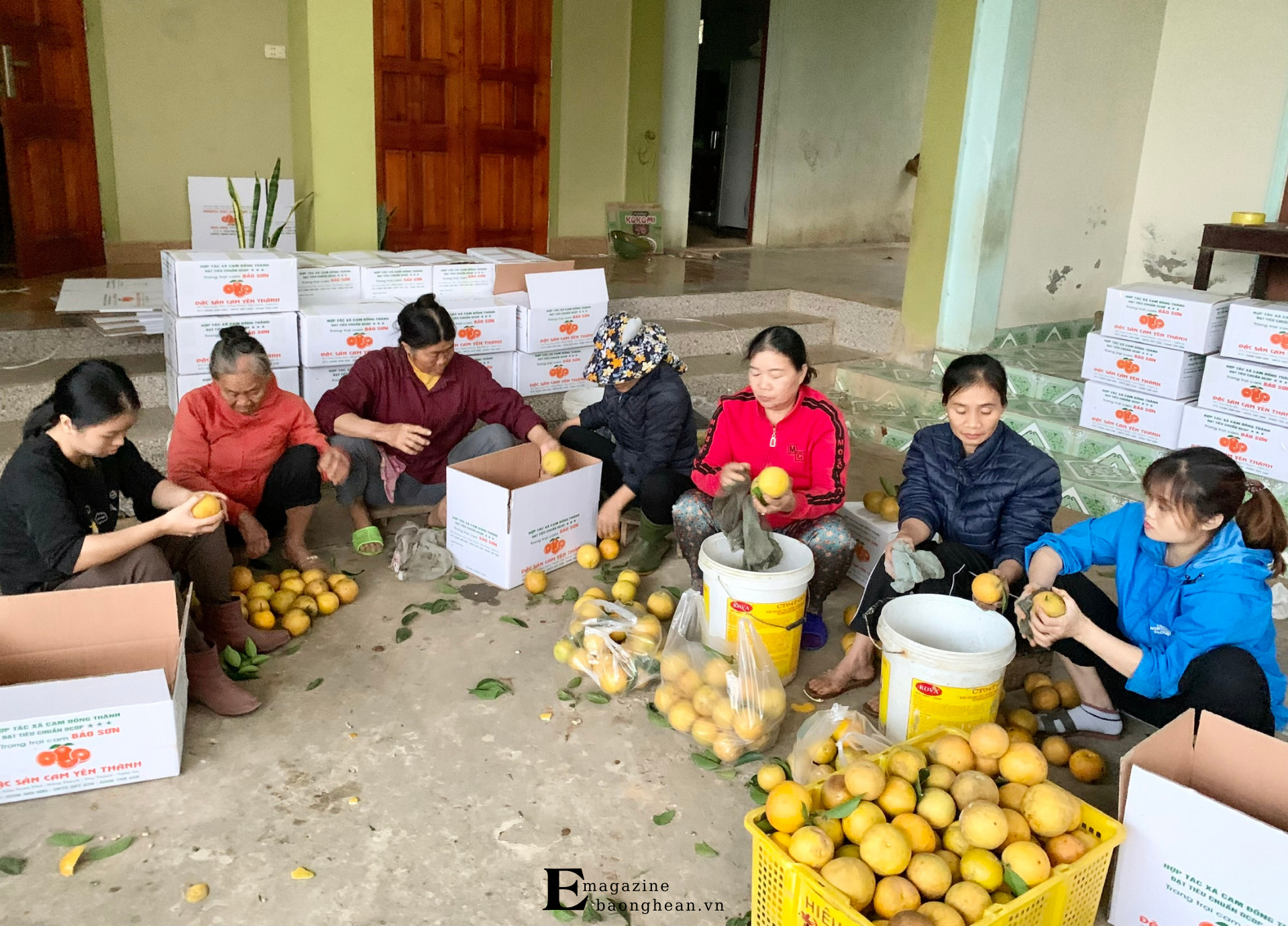
In the VietGAP orange gardens of Dong Thanh Orange Cooperative, strict assurance is made right from the soil source that there is no excess residue of toxins or pesticides; the fertilization process is correct, especially intensive organic fertilization to increase the resistance of oranges. Pesticides are all of known origin, in the list of permitted use for orange trees, herbicides are absolutely not used.
“People also reduce the use of pesticides, prioritize biological pesticides, and soak them themselves from available natural ingredients such as garlic, chili, galangal, and lemongrass. Although it takes more effort, in the long run, the soil is not damaged or degraded, the orange trees are healthy, durable, and give good yield and quality, ensuring food safety,” said Mr. Phan Van Bao - Chairman of the Board of Directors of Dong Thanh Orange Cooperative. Thanks to these measures, Dong Thanh oranges develop well and sustainably, with almost no early degeneration like in many other places.
In Thanh Chuong district, oranges are currently one of the main crops, bringing high value and income to the people. Up to now, Thanh Chuong district has 430 hectares of oranges. For many years, the product "Tong Doi oranges" in Thanh Thuy has been known and favored by consumers near and far. VietGAP and organic production is a direction that this district has paid much attention to in recent years. Up to now, 10 hectares of oranges of Thanh Duc orange cooperative have been certified to meet organic standards; in the orange areas of the district, many technical advances have been applied such as using biological products to prevent pests and diseases, treating off-season flowering, wrapping fruit, producing VietGAP, GlobalGAP, etc.
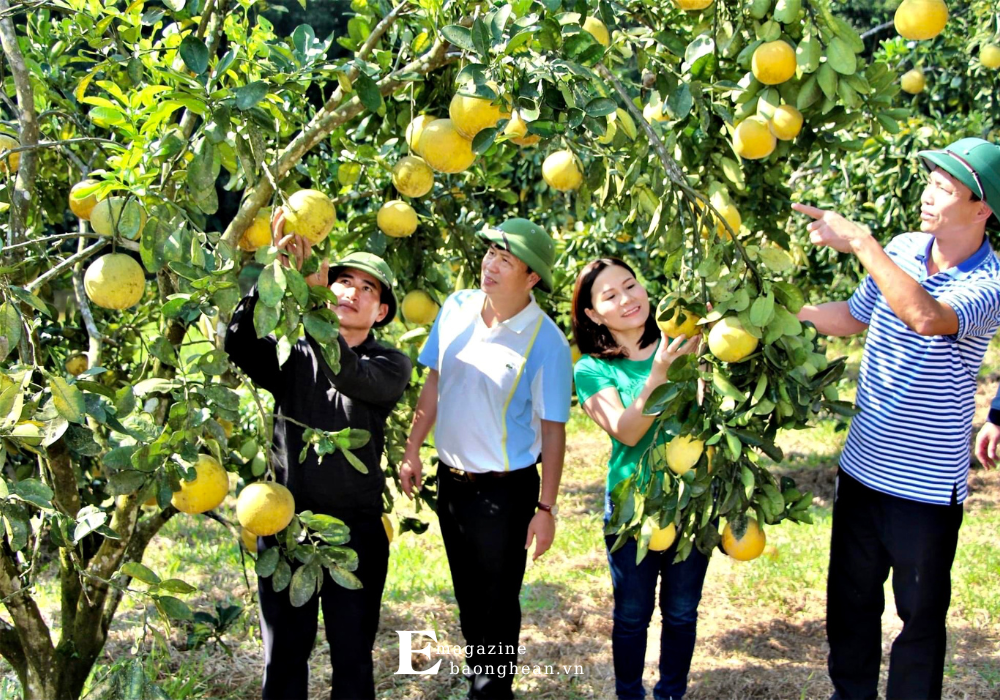
Based on the goal of having 10-15 hectares of organic oranges in Thanh Duc and Thanh Thuy communes by 2026, Thanh Chuong district aims to develop 50 hectares of organic oranges by 2030, of which 35 hectares will be converted and 15 hectares will be completely newly planted. Mr. Pham Ba Nga - Director of Thanh Duc Orange Cooperative, shared: Although it requires high costs and large labor force while the efficiency initially decreased, making people confused; but after several years of implementation, the efficiency has increased, the revenue from organic orange production reached about 480 million VND/year, while 1 hectare of traditional oranges reached 360 million VND/year...
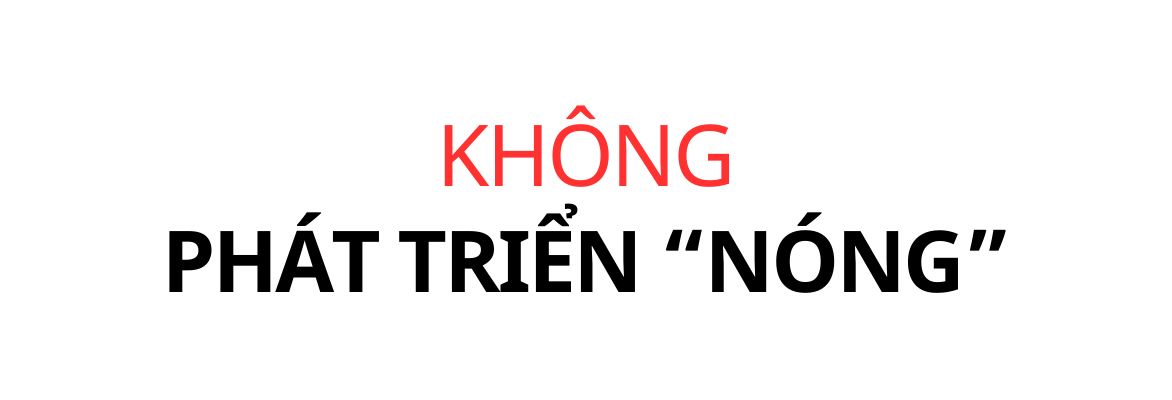
In developing orange trees, Yen Thanh district has clearly defined the viewpoint from the beginning, determined not to chase after area. From the results of soil analysis, the district has planned specific areas, closely following to manage the expanded area, advising people on areas where oranges can be grown or not, avoiding hot and massive development but only developing in areas with suitable soil conditions, meeting intensive farming conditions, to both manage the area and manage the technical process.
Along with clearly defining the growing areas and focusing on directing to prevent widespread and spontaneous planting, the district also promotes solutions to help orange growers truly apply the correct care process to both improve productivity and quality and develop sustainably.
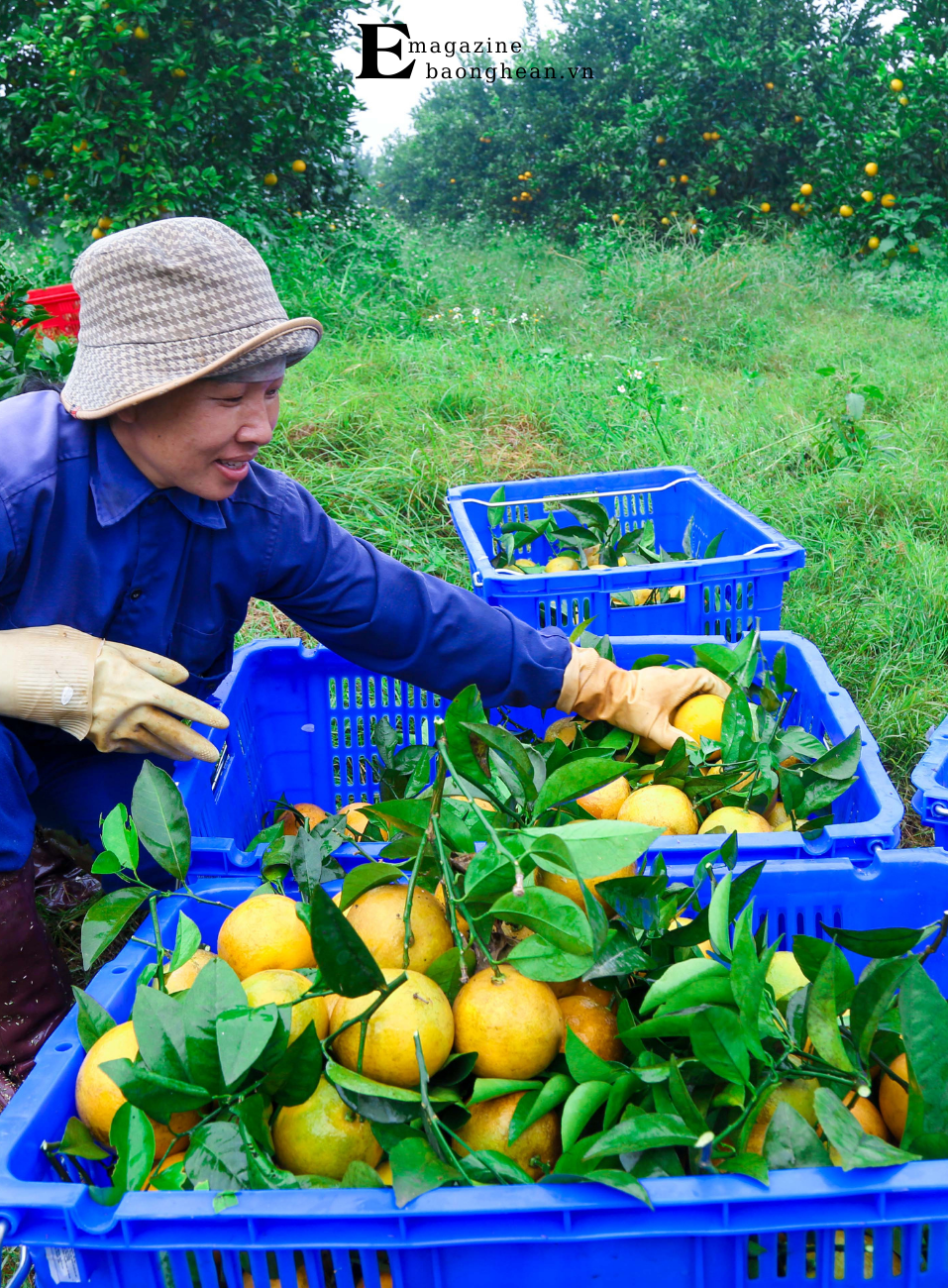
Mr. Nguyen Van Duong - Vice Chairman of Yen Thanh District People's Committee, said: The district coordinates with the Central Plant Protection Institute and relevant agencies to build disease-free orange gardens, good pest control models, organize direct seminars at orange gardens so that people can understand the signs, principles, and measures to prevent and control pests and diseases to apply to their care process; especially propagate to avoid the situation of taking advantage of, forcing oranges to harvest early when they are not yet fully ripe for harvest, affecting the quality of the garden, destroying the orange garden, shortening the life of the orange tree. Every month, inspections, assessments and instructions are organized for people to implement measures to care for and prevent pests and diseases on oranges.
In Thanh Chuong district, according to the discussion of Mr. Le Dinh Thanh - Vice Chairman of the District People's Committee, the positive results from developing orange trees in the area were achieved thanks to the district's early learning of lessons and determination to switch from "hot development" to a "slow but steady" development method. Previously, people mainly used inorganic fertilizers to promote orange growth very quickly, but over time, it showed negative effects, not only did it not bring good results but also made the trees susceptible to pests and diseases, reducing the lifespan of oranges and causing rapid degeneration.
Not developing massively, only focusing on production in areas with suitable conditions, at the same time promoting propaganda and mobilizing people to gradually switch to organic care to increase soil fertility, restore the "health" of orange trees - is the solution that Thanh Chuong district focuses on implementing, and that direction has brought very positive results...
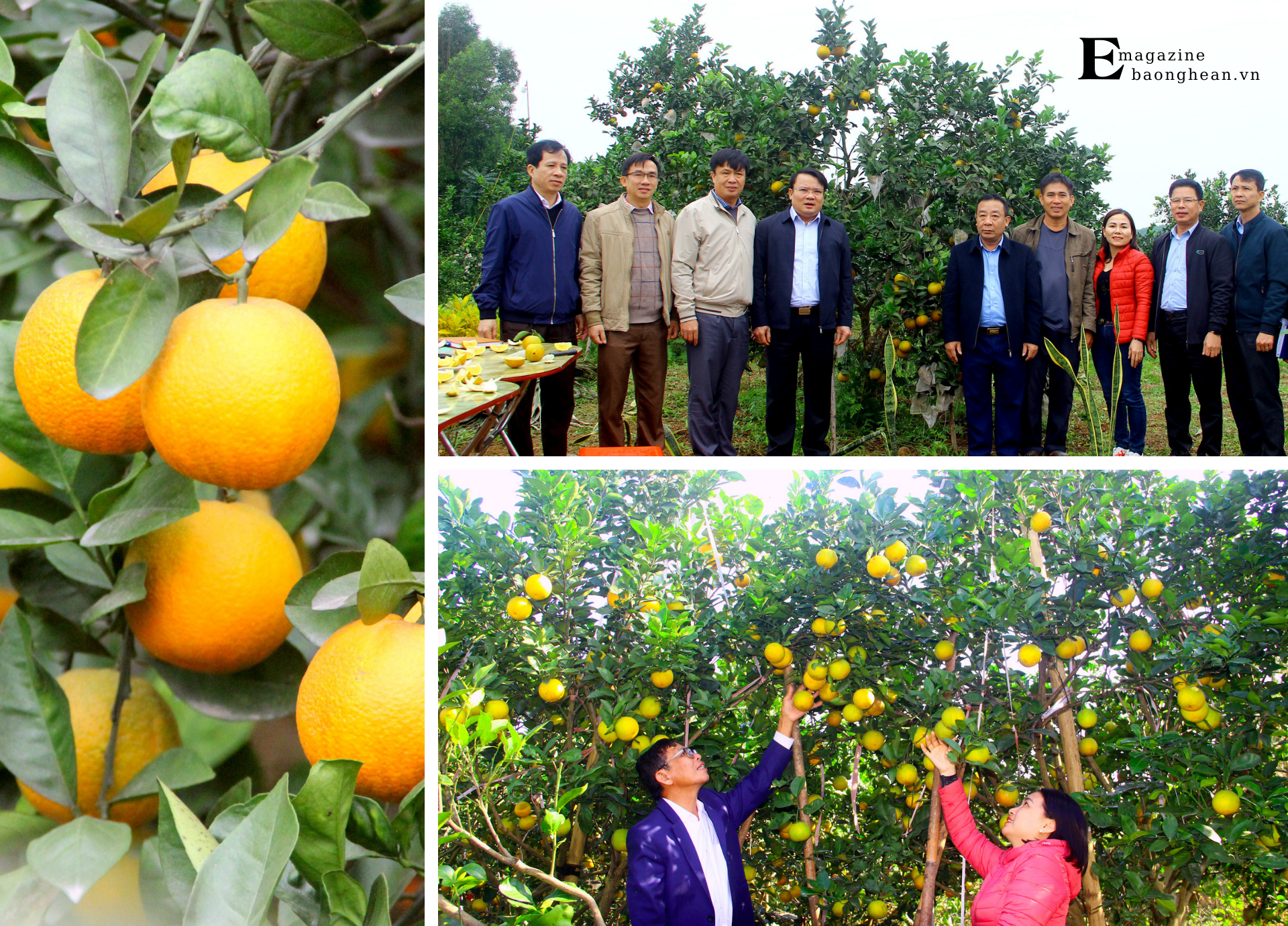
Returning to the situation of destroying orange trees in key areas such as Quy Hop, Nghia Dan..., at the end of 2020, after concluding on the land situation and diseases appearing on oranges, the Central Plant Protection Institute recommended that Quy Hop district should not plant new orange trees in the coming time, and at the same time rotate crops, improve soil and increase biological products to prevent fungi and nematodes that harm oranges. After receiving notice from the professional agency, Quy Hop district directed localities to stop expanding the area of orange trees, and cut down areas that were seriously infected to plant new trees. This is a must, although very painful, so that in the future there can be sustainable and quality orange gardens.
According to Mr. Phung Thanh Vinh - Director of the Department of Agriculture and Rural Development, learning lessons from the orange areas that have been cut down as well as experiences from localities that are growing orange trees well is something that localities need to seriously acknowledge with the agricultural sector, thereby implementing appropriate solutions.
“Currently, the Phu Quy orange growing area, mainly in Nghia Dan and Quy Hop, has shifted to Anh Son, Thanh Chuong and Yen Thanh districts. We must frankly look at the causes leading to the degradation of a large orange growing area in the province, why in localities such as Yen Thanh, Thanh Chuong and a few other places, orange trees still grow well, giving high income, so that we can come up with a standard plan, care process, and standard intensive investment”, Mr. Phung Thanh Vinh emphasized.
